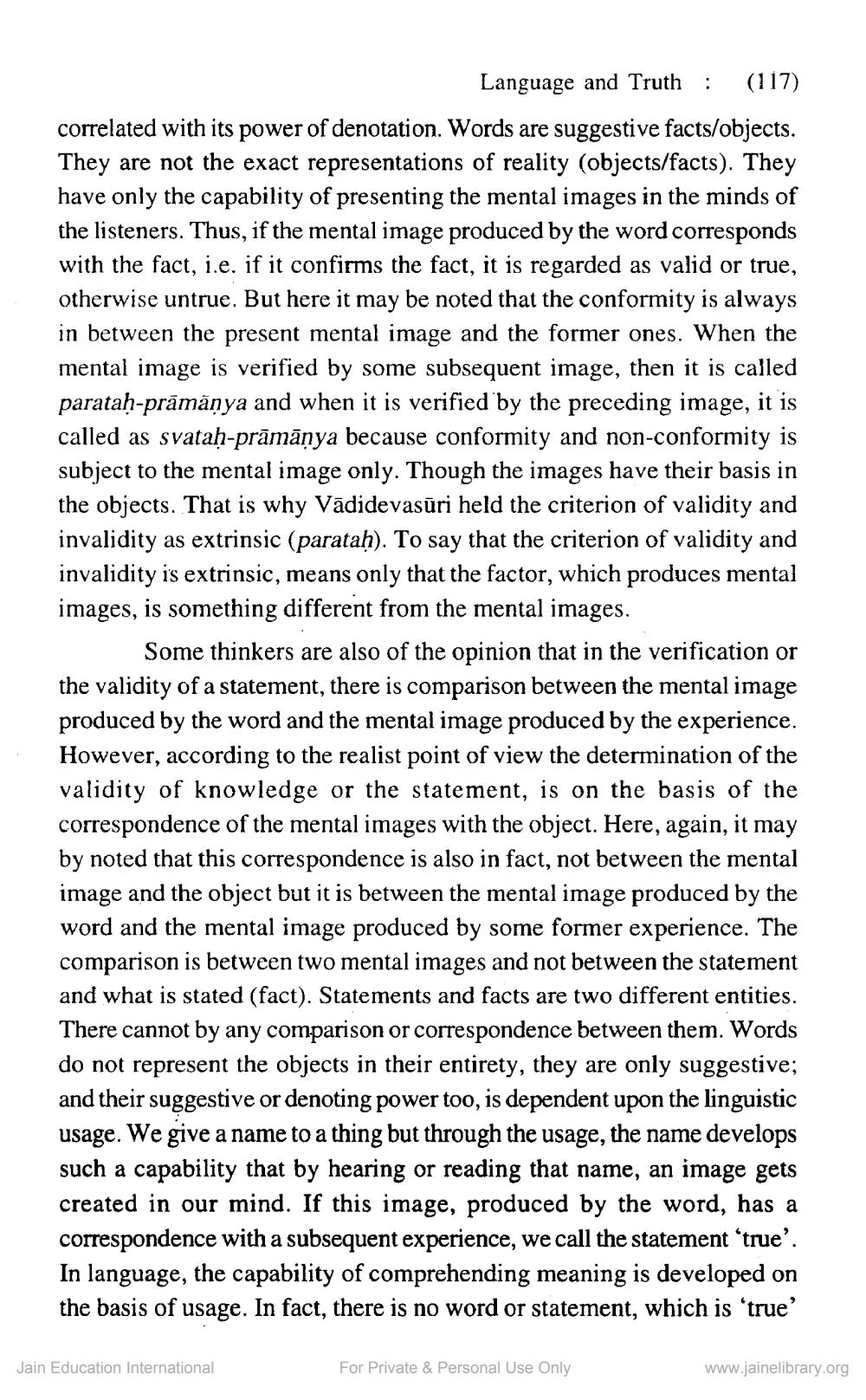________________
Language and Truth:
(117)
correlated with its power of denotation. Words are suggestive facts/objects. They are not the exact representations of reality (objects/facts). They have only the capability of presenting the mental images in the minds of the listeners. Thus, if the mental image produced by the word corresponds with the fact, i.e. if it confirms the fact, it is regarded as valid or true, otherwise untrue. But here it may be noted that the conformity is always in between the present mental image and the former ones. When the mental image is verified by some subsequent image, then it is called parataḥ-prāmānya and when it is verified by the preceding image, it is called as svatah-prāmāṇya because conformity and non-conformity is subject to the mental image only. Though the images have their basis in the objects. That is why Vādidevasūri held the criterion of validity and invalidity as extrinsic (parataḥ). To say that the criterion of validity and invalidity is extrinsic, means only that the factor, which produces mental images, is something different from the mental images.
Some thinkers are also of the opinion that in the verification or the validity of a statement, there is comparison between the mental image produced by the word and the mental image produced by the experience. However, according to the realist point of view the determination of the validity of knowledge or the statement, is on the basis of the correspondence of the mental images with the object. Here, again, it may by noted that this correspondence is also in fact, not between the mental image and the object but it is between the mental image produced by the word and the mental image produced by some former experience. The comparison is between two mental images and not between the statement and what is stated (fact). Statements and facts are two different entities. There cannot by any comparison or correspondence between them. Words do not represent the objects in their entirety, they are only suggestive; and their suggestive or denoting power too, is dependent upon the linguistic usage. We give a name to a thing but through the usage, the name develops such a capability that by hearing or reading that name, an image gets created in our mind. If this image, produced by the word, has a correspondence with a subsequent experience, we call the statement 'true'. In language, the capability of comprehending meaning is developed on the basis of usage. In fact, there is no word or statement, which is 'true'
Jain Education International
For Private & Personal Use Only
www.jainelibrary.org




